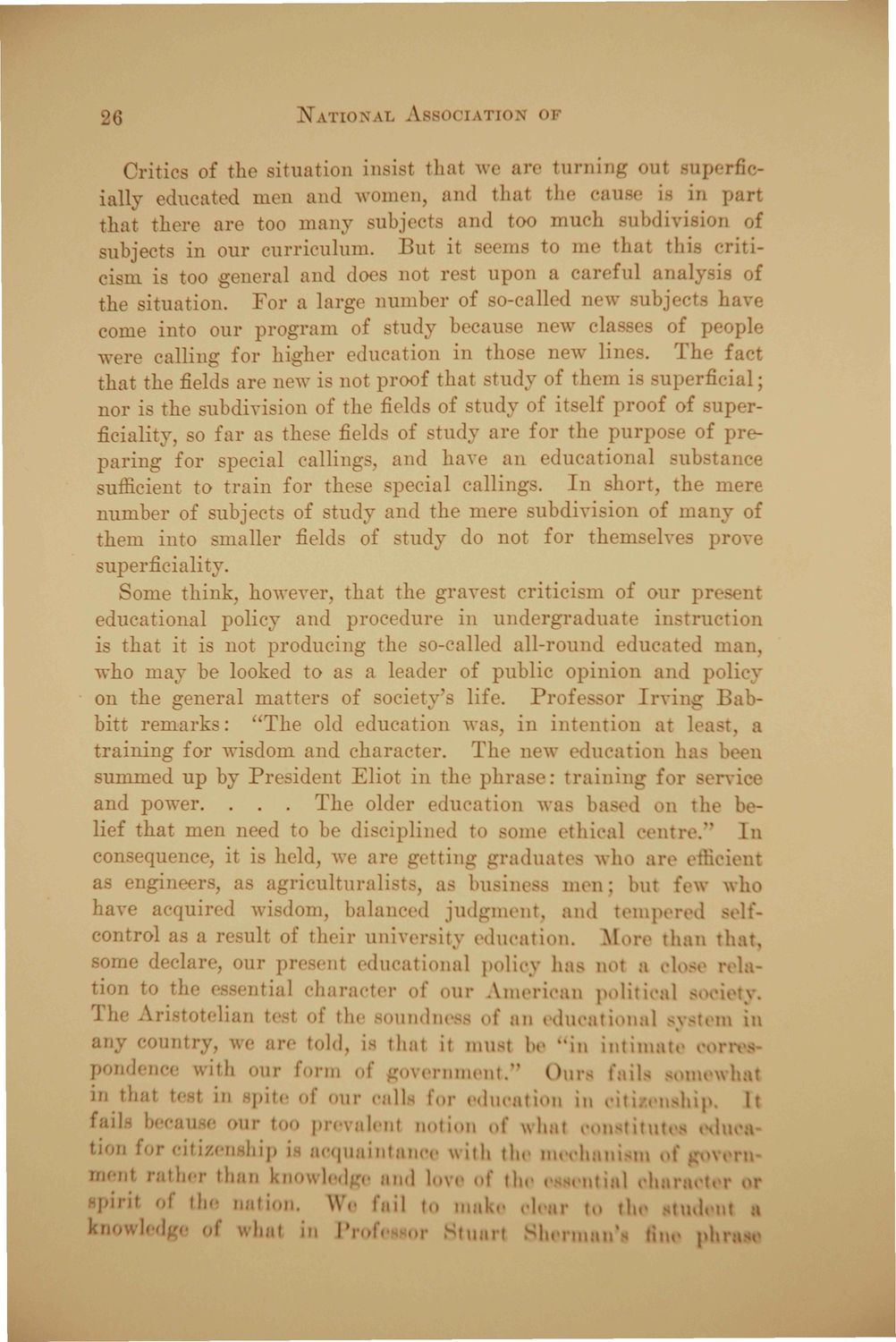| |
| |
Caption: Booklet - Kinley Speech Cirrculum and Consequences (1924)
This is a reduced-resolution page image for fast online browsing.

EXTRACTED TEXT FROM PAGE:
2G NATIONAL ASSOCIATION OF Critics of the situation insist thai we are turning out superficially educated men and women, and thai the cause is in part that there are too many subjects and too much subdivision of subjects in our curriculum. But it seems to me that this criticism is too general and does not rest upon a careful anal - of J the situation. For a large number of so-called new subj< 3 have come into our program of study because new classes of people were calling for higher education in tbose new lines. The fact that the fields are new is not proof that study of them is superficial; nor is the subdivision of the fields of study of itself proof of superficiality, so far as these fields of study are for the purpos of preparing for special callings, and have an educational substance sufficient to train for these special callings. I n short, the mere number of subjects of study and the mere subdivision of many of them into smaller fields of study do not for themselves prove superficiality. Some think, however, that the gravest criticism of our present educational policy and procedure in undergraduate instruction is that it is not producing the so-called all-round educated man. who may be looked to as a leader of public opinion and polic; on the general matters of society's life. Pi —or I r v i n g Babbitt remarks: "The old education was, in intention at least, a training for wisdom and character. The new education has b m summed up by President Eliot in the phrafi : training for service and power. . . . The older education was based on the belief that men n 1 to be disciplin I to some ethical i litre." In consequence, it is held, we are getting graduates who are < ient as engineers, as agriculturalists, as business men: but tYw wh. have fl quired wisdom, balanced judgment, and tempered self- control as a result of their university education. The Aristotelian test of th. ^.undne More than that. relaci< v. >me declare, our present educational policy has not a el tion to the i sent in 1 character of our American i litical of in educational s> m in s any country, *e are told, is that it must be "in intimate cor pondena with our form of government." Ours fails tnewhat Jn that t« t in -pile of our calls for education in ti diip. It a,,s f becau or t i pi [en1 notion of what oonstitut< duonn foreitizennhip is <pmintance with the mi hnnisni ivornment rather than knowledge and \o\ of tin- < ntial eh r« r ml !' of the nation. Wo fail to mal w \» the tudotil • knowled of whaf in Pi or Stuart Sherman' phra*
| |